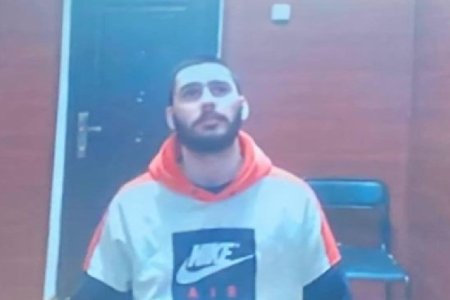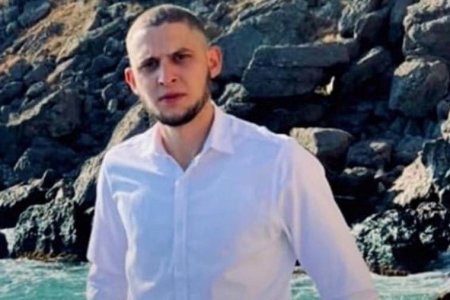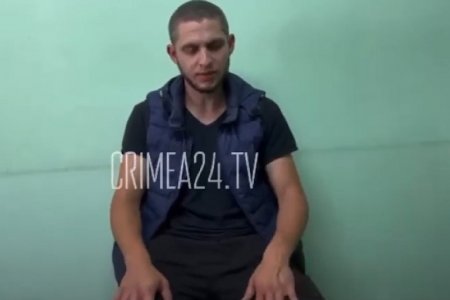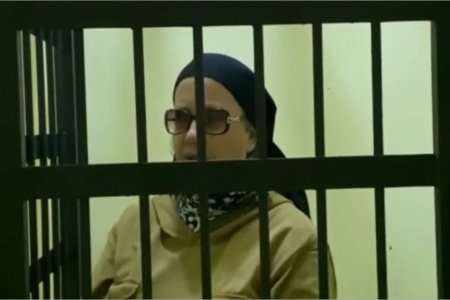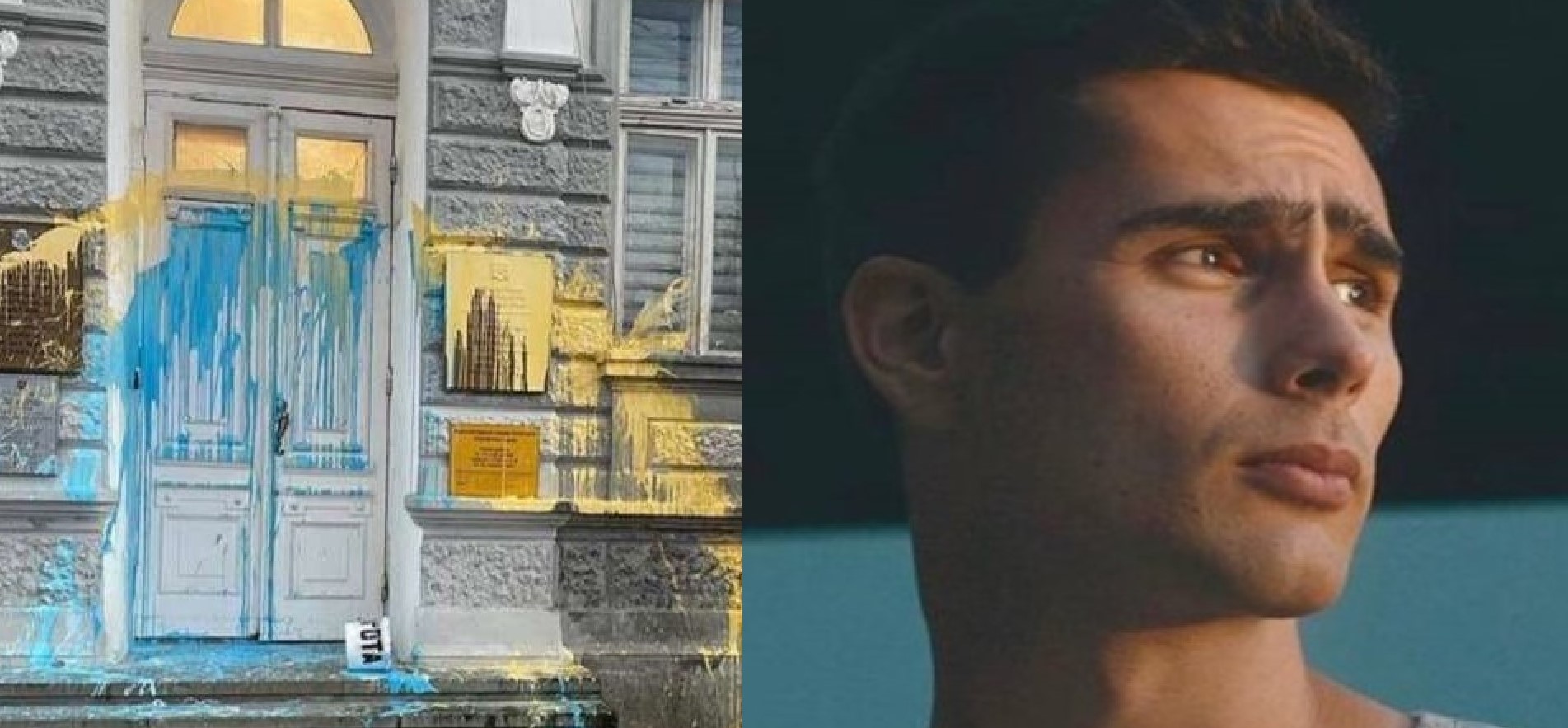
Bohdan Ziza [Azizov] has confirmed that the supposed ‘confession’ that he made in May 2022 in occupied Crimea was extracted through torture. The one shown on Russian and occupation TV was, in fact, one of at least five that Russia’s FSB tortured out of the Yevpatoria artist while holding him incommunicado.
As reported, Ziza has been imprisoned since his protest over Russia’s war against Ukraine on 16 May 2022. For some time, his whereabouts were unknown, then, once his ‘confessions’ had been extracted, he was formally remanded in custody in the appallingly over-crowded and filthy SIZO [remand prison] in Simferopol. Ziza was initially fined under one of the administrative charges hastily introduced (together with criminal charges) to silence protest over the full-scale invasion. He was not, however, released from SIZO and it became known in late November that he was facing very serious charges. The indictment includes four articles of Russia’s criminal code: Article 205 § 1 (carrying out a terrorist act); the same article but as the threat to carry out a terrorist act; 205.2 § calls to terrorism and 214 § 2 (politically-motivated vandalism). He has also been placed on Russia’s notorious ‘List of extremists and terrorists’ (together with a huge number of other Russian and Ukrainian political prisoners and prisoners of conscience).
Ziza was moved to a Russian SIZO in January 2023 where the ‘trial’ is to take place before the Southern District Military Court in Rostov. While still in the Simferopol SIZO, he agreed to give ‘an interview’ to Radio Svoboda’s Crimean Realities, answering the latter’s questions in written form.
There was never any doubt that, in the early hours of 16 May 2022, Ziza had painted the entrance to the occupation ‘administration’ in Yevpatoria in the colours of the Ukrainian flag. It was less clear whether he had thrown a Molotov cocktail, however he has confirmed that there was such a petrol bomb. This was, he says, to give more impact to the video clip that he was making of the protest, and certainly not to set the building alight. He rightly points out that, in any case, this was not terrorism, which he says he will prove in court. He adds, however, that “this is solely out of principle as I don’t expect any fair justice and I don’t recognize occupation courts.”
Asked why he had chosen his specific form of protest, Ziza explained that, when Russia began its full-scale invasion of Ukraine, friends had called on him to join them in a street picket, and he had not gone. While wanting to demonstrate his opposition, he knew such pickets would very likely end in detention, which could hinder his plans to leave occupied Crimea. He explains that he had also not wanted to attract the enforcement bodies’ attention, as he had been trying to avoid being forced to do Russian military service since 2014. He had closed up inside, he said, and had not made any comments on social media, etc., but did feel the need to do something. He had therefore “decided to attract the attention of as many people as possible and did so in a way that’s usual for me, which has always save me in difficult psychological states – through paint.”
Ziza explains that this was not the first such protest action. He had periodically carried out acts of what he calls political vandalism at night. He had realized he might be detained, but clearly failed to recognize the danger at a time when Russia was in full war mode and looking for any pretext to blame Ukrainians for ‘terrorism’ or similar. His seizure, in fact, came almost exactly eight years after the FSB arrested Ukrainian filmmaker Oleh Sentsov and three other opponents of its invasion of Crimea. There too, a Molotov cocktail attack at night on a building linked with Russia’s invasion was treated as ‘terrorism’ and two of the men tortured into ‘confessing’ and giving false testimony against Sentsov. The latter received a horrific 20-year sentence for refusing to collaborate.
‘Videoed confession’
Russia has been torturing men (and some women) seized and held without access to independent lawyers since 2014, with one of the purposes being to extract ‘confessions on video’. Even before this interview, it had seemed clear that Bohdan could not possibly have made it except under duress. Even the language, his use of the official Russian euphemism for its invasion [‘special military operation’] were entirely out of character. He has now confirmed that they were anything but voluntary, and points out that the FSB forced him to make at least five such videos. One ended up in the media, another in the file material, while several were rejected. They really need videos with apologies, he says, both to fabricate criminal charges, and in order to frighten the population and try to present general agreement with the regime’s actions. The FSB don’t stop at anything, he says, and adds that virtually every political prisoner is subjected to beatings and torture.
The first video he was forced into making was sent to somebody who demanded that he do it again as he didn’t seem to be sincerely ‘repenting’.
“I deliberately showed no emotion, so they beat me again. I’m not a very good actor and, in addition, the text kept changing. First I had to apologize to the Russian army, then to Putin.” He adds that, in the end, even they understood that the apology to Putin was excessive.
Ziza thanks all of those who have ensured publicity for his plight. He notes that he is an enemy as far as Russia is concerned “therefore, in the end, I chose an overtly pro-Ukrainian position, so at, in the first instance, to be honest to myself. Yes, that is harder since at the moment pro-Ukrainian views in Russian captivity can be compared to suicide. But better that than to also be hostage to your own fear.”
He would be lying, he adds, if he said he hadn’t experienced fear, however “through my own example, I wanted to show that the time for being afraid and staying silent has passed.”
